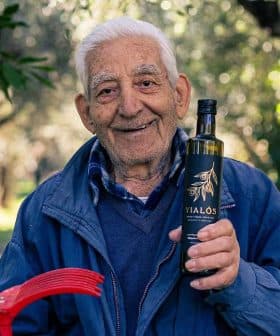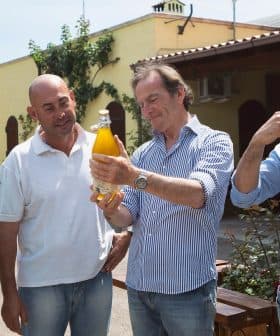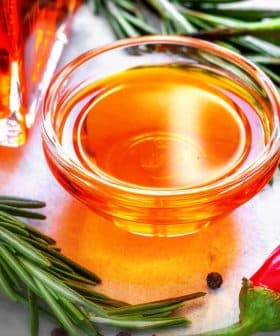U.S. Olive Oil Producers Win Big at World Competition
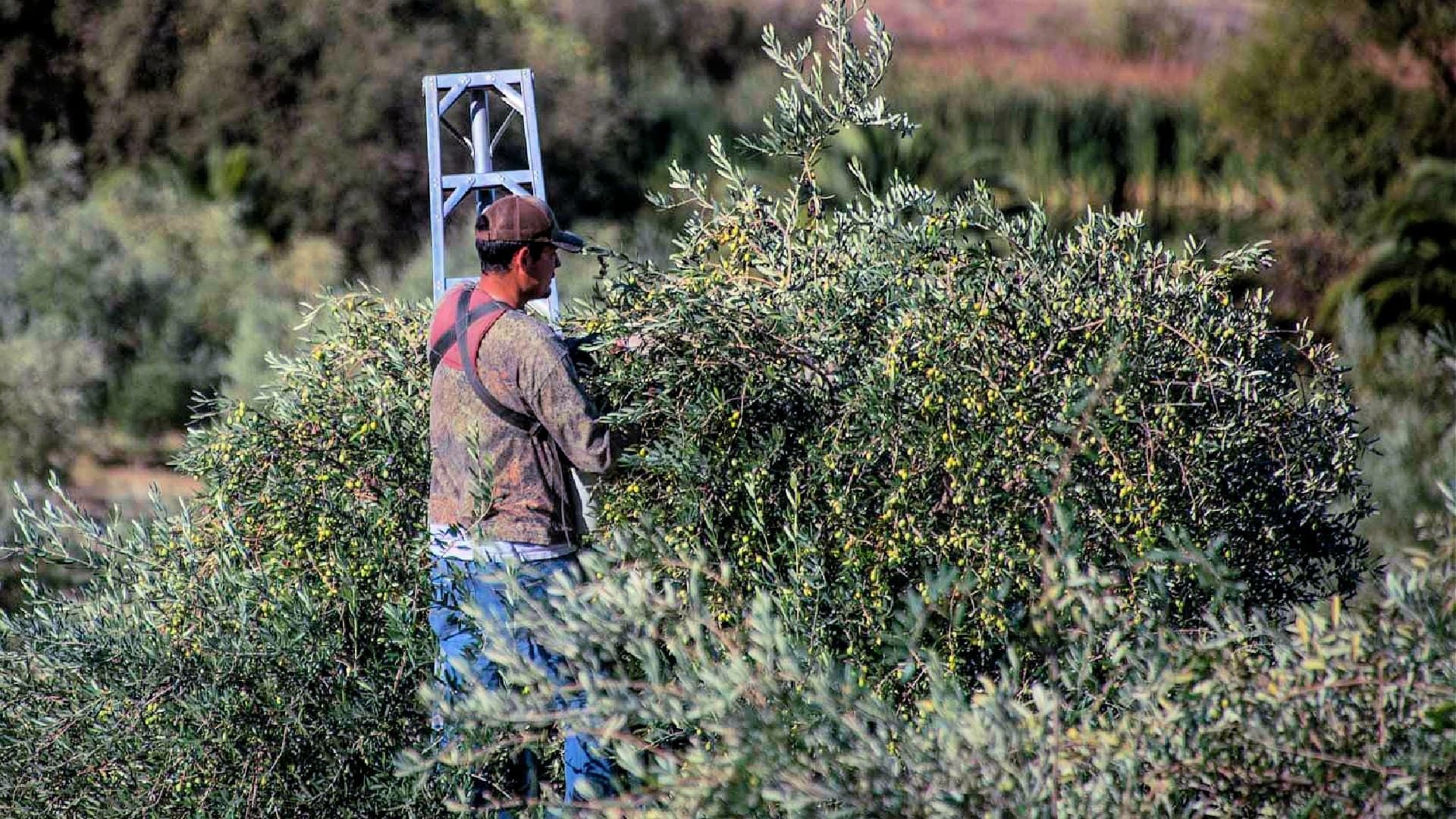
U.S.-based farmers and millers have shown they can produce high-quality olive oils that match those from Old World counterparts, winning 92 awards at the 2025 NYIOOC World Olive Oil Competition. Producers in California, Oregon, and Arizona have overcome challenges to craft award-winning oils, with the 2024/25 harvest showing a notable increase in production and quality compared to previous years.
With on-again, off-again tariffs in the news, there has been a constant reminder that the United States produces less than three percent of the olive oil it consumes.
However, U.S.-based farmers and millers have again proven they can produce high-quality extra virgin olive oils that match those from their Old World counterparts.
Farmers and millers from Arizona, California and Oregon combined to win 92 awards at the 2025 NYIOOC World Olive Oil Competition, the third-highest total since the competition began in 2013.
Our customers are surprised and impressed to hear that California olive oils win so many awards… People often don’t know how far the industry has come in this region.
From early frosts in Oregon to unpredictable weather and rising labor costs in California, producers overcame a growing list of familiar challenges to craft well-balanced, flavorful, and defect-free olive oils.
California Olive Ranch (COR), the country’s largest producer, won awards for five 100-percent California products and two of its “Global Blends.” The company also won awards for its Lucini brands, which were produced in Italy.
Mary Mori, COR’s vice president of quality and product, said the COR team was “immensely excited” about the news of the awards. The unprecedented haul motivated the company to continue solidifying its commitment to quality.
See Also:The best extra virgin olive oil from the U.S.“We take pride in the awards and results and always review the feedback shared in the analysis for both winning and non-winning oils,” she said. “We then share this with our team to identify areas for improvement.”
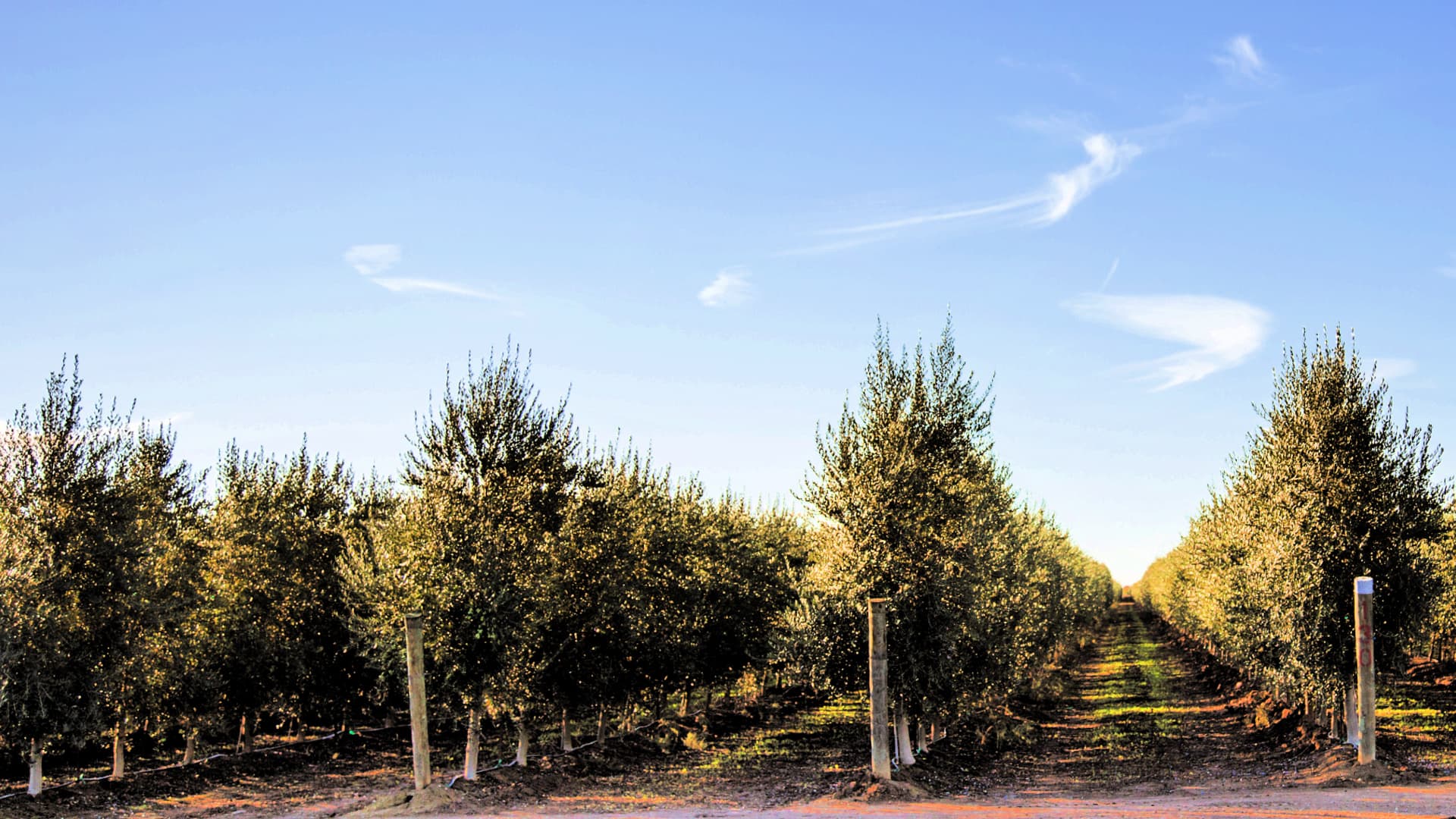
California Olive Ranch earned seven awards for its U.S. brands and two for its Italian Lucini brand. (Photo: California Olive Ranch)
“One difference of NYOOC is its focus on overall quality and good taste rather than individual judge preferences,” Mori added. “This allows us to better control our processes, whether by modifying the oils we purchase or by adjusting our own harvest timing to prioritize fresher, early-harvest oils.”
This year’s awards come after what Mori described as a plentiful harvest compared to previous years.
According to the United States Department of Agriculture, U.S. olive oil production slightly exceeded the five-year average, reaching 10,000 metric tons in the 2024/25 crop year. The vast majority of this production is located in California.
“While it’s typically an alternate bearing year, we’ve implemented farming changes, focusing on irrigation and precise deficit irrigation techniques, to better stabilize and significantly improve the quality of the olives delivered to the mill,” Mori said.
While many of the country’s largest producers — including Corto Olive, which earned a Silver Award, and Baltimore-based Pompeian, which claimed three Gold Awards — celebrated their NYIOOC successes, small-scale producers also showcased their ability to craft award-winning olive oils.
In the prolific olive oil-producing region of Paso Robles, Marcum Olive Oil earned two Gold Awards for a pair of monovarietals.
“Winning these awards serves as an inspiration to continuing our commitment to quality, freshness and perfecting our olive oil-making craft,” co-owner Lonnie Marcum said.
“California produces the vast majority of the olive oil in the U.S.,” she added. “This recognition brings not only prestige and credibility to California, but also increased visibility among consumers who seek out the very finest extra virgin olive oils in the world.”
The Central California producer overcame unpredictable weather using sustainable growing techniques and organic olive fruit fly management to produce its hand-harvested, award-winning oils.
“2024 was an interesting growing year,” co-owner Grant Marcum said. “One of our varieties, Coratina, produced twice as much as the prior year, while the other trees, the Itrana, produced about half as much.”
About 2.5 hours south on highway U.S. 101, the producers behind Ojai Olive Oil Company marked a fruitful end to the harvest, winning four Silver Awards.
“It’s always very satisfying to win at the NYIOOC,” owner Philip Asquith said. “This year’s wins bring our total to over 20 awards, which is wonderful. We’re quite proud of our medals, and have all the trophies on display in our tasting room.”
Along with his fellow Californians, Asquith touted the role of the NYIOOC in promoting California extra virgin olive oil to local consumers.
“Our customers are surprised and impressed to hear that California olive oils win so many awards,” Asquith said. “They also like knowing that California has very high standards for what can be called ‘extra virgin’ here. People often don’t know how far the industry has come in this region.”
While the 2024/25 crop year produced high-quality olives, Asquith said the quantity was lower than the bumper harvest of 2023/24. As has increasingly become the case, he highlighted hiring workers for the harvest as one of the biggest challenges.
“The biggest challenge we faced this past season was the cost of picking,” Asquith confirmed. “Every other aspect of our operation has been quite consistent year to year, but the harvesting expenses have gone up quite a bit in recent years. It’s manageable for us, but has become the single biggest cost component in making a bottle of olive oil.”
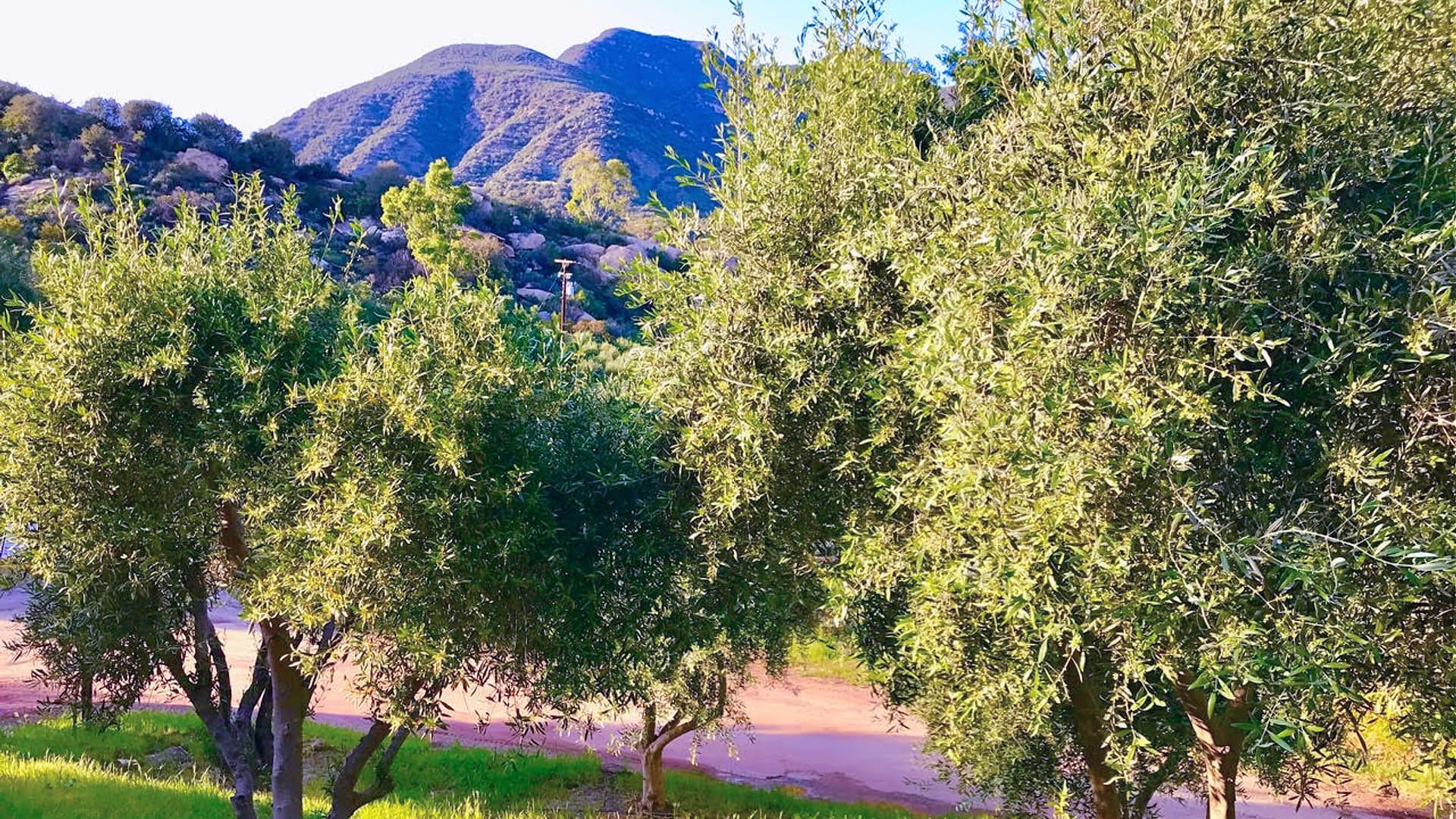
Ojai Olive Oil celebrated four Silver Awards at the 2025 edition of the World Olive Oil Competition. (Photo: Philip Asquith)
On the opposite end of California, Apollo Olive Oil celebrated winning two Gold Awards at the World Competition for a pair of organic blends.
Winning at the NYIOOC “helps small producers like ourselves to have third-party confirmation that your olive oil is of high quality,” partner Steve McCulley said. “Because of the high standards of NYIOOC, its results are highly regarded in California.”
“The new ranking system shines a light on producers who have consistently earned top marks over the years, making it easier for consumers to find high-quality oils,” said the producer of the world’s second-highest ranked olive oil.
While Apollo Olive Oil faced adverse weather events in 2024, McCulley said the harvest was consistently high quality. The main difference he saw was that it started later than usual.
However, he added that the main challenges for producing award-winning quality extra virgin olive oil remain constant.
“Organizing harvest to get sufficient pickers to hand pick, scheduling efficient delivery of olives to the mill, and fine-tuning our special mill that greatly reduces oxidation during processing all require careful planning,” McCulley said.
Not far from Apollo Olive Oil, the producers behind Organic Roots also celebrated their World Competition success, winning Gold Awards for organic Arbequina and Koroneiki monovarietals.
“Winning two Golds at the NYIOOC feels incredible,” the Polit family said. “We are a family-owned and operated business, and when it’s olive harvest time, it’s all hands on deck. To win Golds while competing internationally shows how much our hard work pays off.”
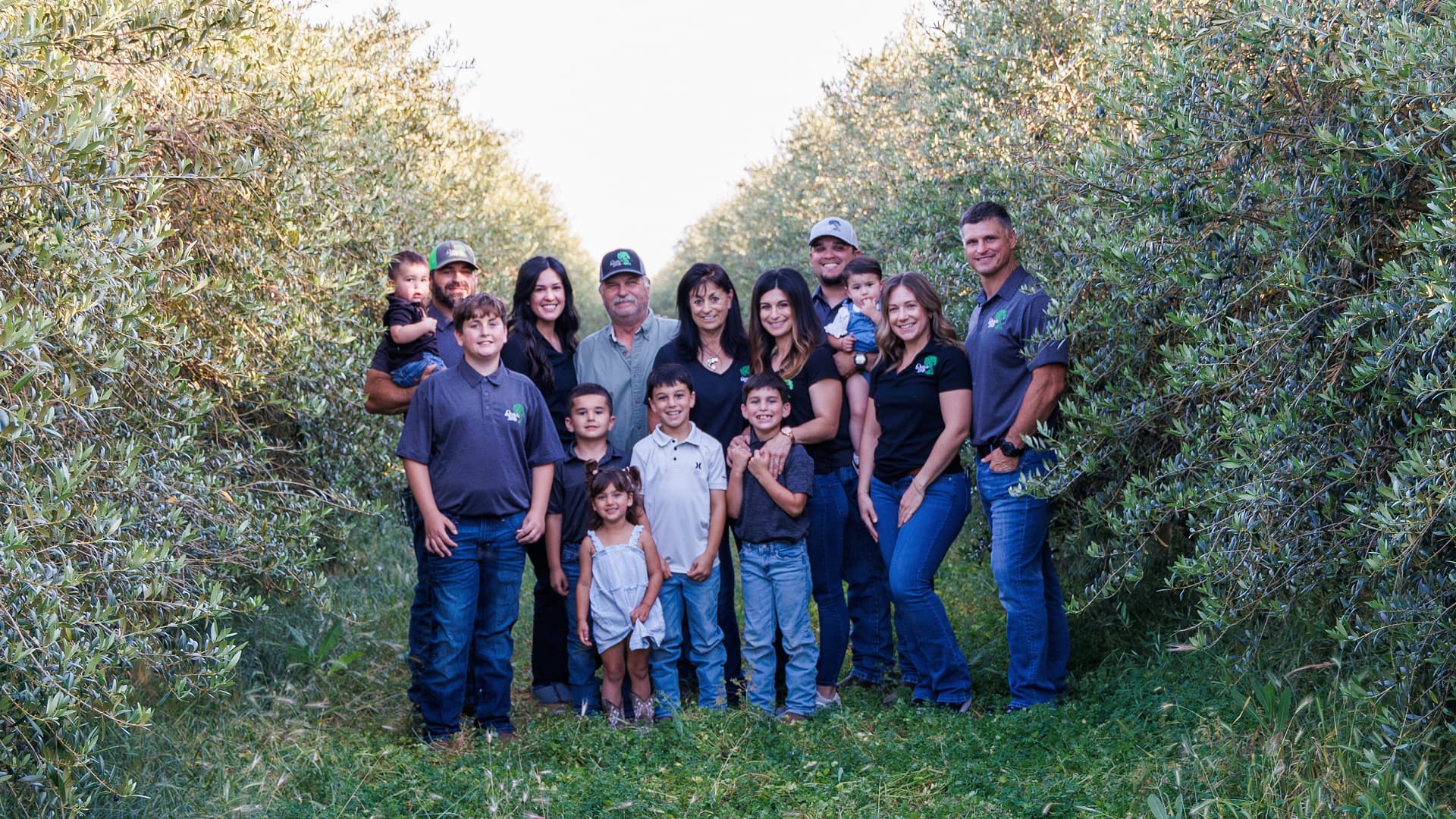
The family behind Organic Roots enjoyed a frutiful harvest, capped off with a pair of Gold Awards at the 2025 NYIOOC. (Photo: Organic Roots)
The Polits added that the awards also help boost the reputation of California organic extra virgin olive oil on the global stage.
“Winning awards at the NYIOOC not only boosts the reputation of individual producers but also elevates the perception of California extra virgin olive oil as a whole,” the family said. “It serves as a testament to the state’s commitment to quality and innovation in organic olive oil production.”
While Organic Roots enjoyed a harvest rebound in 2024/25 compared to the previous two crop years, unpredictable weather is always the company’s main harvest challenge.
“The 2024/25 organic olive oil harvest marked a notable recovery in production and quality compared to the previous two challenging seasons,” the Polits said. “With a combination of timely rains during winter and cooler, steady spring temperatures have supported strong tree development without the extremes that usually hurt organic yields.”
While California dominates U.S. extra virgin olive oil production in quantity, award-winning quality can be found beyond the Golden State.
See Also:2025 World Competition CoverageIn neighboring Arizona, Queen Creek Olive Mill earned four Silver Awards.
“Winning four Silver Awards at the 2025 NYIOOC is an incredible honor and a testament to our team’s dedication to crafting exceptional extra virgin olive oil,” president John Rea said.

The Rea family said yhe NYIOOC awards helps put Arizona on the olive oil map (Photo: Queen Creek Olive Mill)
He added that the awards also serve as a barometer, allowing Arizona’s only commercial olive mill to measure where they stand compared to domestic and international competitors.
“These awards significantly elevate the perception of Arizona extra virgin olive oil, both locally and beyond,” Rea said. “Many people are surprised to learn that high-quality olive oil can be produced in Arizona’s desert environment, and NYIOOC recognition helps dispel skepticism.”
Rea acknowledged that the company’s World Competition success was partly fueled by favorable weather conditions in the previous harvest. He added that the situation is looking good in the olive groves ahead of the coming crop year.
“The primary challenge was timing the harvest in Arizona’s unique desert-continental climate, which differs from other U.S. olive-growing regions,” he said. “We monitor the grove closely from November into December to ensure the olives are harvested at optimal ripeness, balancing quality with weather risks like sudden temperature drops.”
On the other side of California, two producers in Oregon were awarded at the World Competition. Dark Hollow Farm in southern Oregon’s Rogue Valley earned a Gold and Silver Award in its NYIOOC debut.
Further north, Oregonian olive oil pioneer and perennial World Competition winner Durant Olive Mill added four more Gold awards and a Silver Award to its collection.
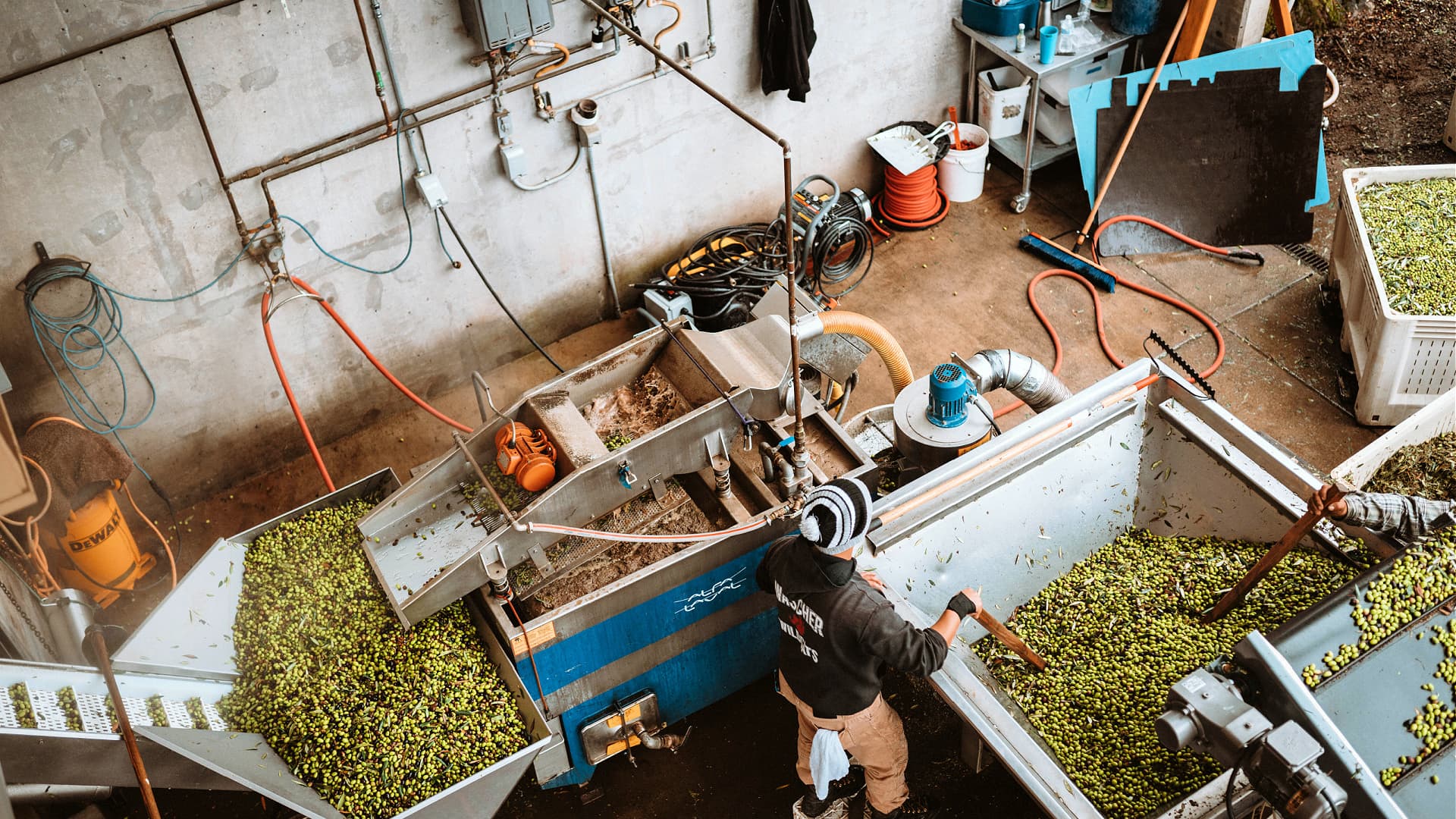
With five more awards, Durant Olive Mill again demonstrated that California does not hold the national monopoly on award-winning quality. (Photo: Durant Olive Mill)
Owner Paul Durant said that “it feels great” to win at the NYIOOC and know all the oils the company submitted were top-tier, especially its popular Arbequina monovarietal.
“As always, third-party validation is so important for consumers,” Durant said. “We have to source fruit out of Northern California, and people are always interested in how we handle that logistically and if there are any impacts on quality.”
“We obviously have great quantitative data indicating extra virgin grade, but the awards from NYIOOC hammer home the point that we are able to craft world-class, high-quality olive oil right here in Dayton, Oregon,” he added.
Due to its northern latitude compared to many other olive oil-producing regions, Durant said completing the harvest ahead of the winter frost and snow is always challenging.
“The biggest issue for us is length, weather and logistics,” he said. “We started grape harvest in late August and did not finish milling until December 15th.”
“We had some early-season freezing weather, and if it hadn’t been for our new frost control wind machines, we would have lost a good portion of our estate fruit,” Durant added. “Instead, we were able to get it all harvested at the time of our choosing and did not have our hand forced by the weather.”
Overall, the company processed over 330 U.S. tons of olives this year and had a “fantastic” season in its two-year-old state-of-the-art Pieralisi mill.
“We hit the intersection of amazing quality and fantastic yield. In an era of rising costs across the board, having such great yield really helped to keep our unit costs down,” Durant said. “We don’t expect to raise any of our prices in 2025.”
Producers were optimistic about the 2025/26 crop year but cautioned that it is still very early in the season and plenty will change throughout the spring and summer.
“We have a great bloom on the trees, and can already tell that it’s going to be a big harvest for 25/26,” Asquith of Ojai Olive Oil Company said. “Even with minimal rain this winter, the trees seem very happy and are packed with blossoms right now.”
“Right now, the trees are looking healthy and the buds are looking good,” Grant Marcum added.
For her part, Mori from COR said that late rain and cool weather in February and March delayed tree growth and blooming, so it remains too early to tell how the harvest will develop.
“The buds we’re observing look promising, but the true picture will emerge in a month or two once the fruit set is established after flowering,” she said. “In previous years with delayed flowering, we anticipated a late harvest; however, summer heat prevented this, so the outcome of this year remains uncertain. Overall, things look good, and we anticipate a fruitful season.”
Meanwhile, Durant said the situation in Oregon looks good so far. “The trees here a just starting to wake up, and we will see how things unfold and hope for the best,” he concluded.



